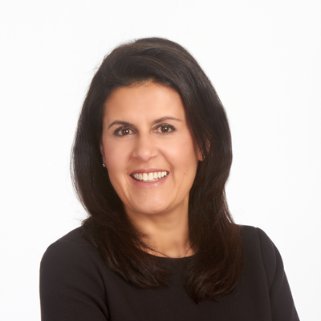Take a Quick Look
We’re committed to creating an education as unique as your career path. So, whether your goal is a new career or moving up in your field, our innovative programs will get you going your way.
01
Customize your plan
We work with you to map your path to your goal.
02
Learn from experience
From real-world case studies to employer-based projects, we prepare you to manage what comes next.
03
Choose your focus
Whatever you’re passionate about, you’ll find the classes to sharpen your specialty.
04
Study anywhere, on your time
Part-time or full-time, we move at your speed, to get you where you’re going.
Overview
The Master of Science in Commerce and Economic Development provides the knowledge and tools to confidently guide private and public decision-making in the context of increasingly borderless global markets. The program provides in-depth knowledge of the financial, regulatory, and economic environments and institutions that affect the global economy, applying the lens of applied economics to help you develop and hone skills that include: quantitative methods in economic theory, policy analysis, and research; data collection and interpretation; the evaluation of pricing, output levels, and labor markets; and the analysis of the impact of art, culture, and environmental resources on economic development. Your training is capped by an experiential placement that synthesizes classroom learning and hands-on application, harnessing real-world problems to help you to bring theory to life.
This is an online program.
More Details
Unique Features
- Program designed for midcareer professionals
- Graduates are positioned for jobs in government, international organizations, nonprofit organizations, universities, or the private sector
- STEM designation allows international students to apply for a 24-month OPT STEM Extension to their 12-month Optional Practical Training (OPT) period, allowing them to work in the U.S. for up to 36 months after graduation
- Boston location is a hub for healthcare, education, finance, business, biotechnology, and the life sciences
- Required capstone project
- Financial Economics concentration prepares students for the CFA Institute Level I exam
Program Objectives
- Translate economic theory and classroom materials into core competencies
- Apply quantitative skills in the areas of economics, economic theory, policy analysis, and research
- Learn to set prices and output levels
- Use conceptual and mathematical tools to examine fluctuations in employment, prices, and economic growth
- Develop skills in data collection, estimation, and results interpretation
- Apply theories of economic growth, technology, structural changes, industrialization, factor proportions and prices, trade, population, and income distribution
- Evaluate labor markets and the role of human capital
- Assess how art, culture, and entertainment impact economic development
- Analyze the impact of environmental resources on commerce and economic development
Career Outlook
Several major trends—policy convergence, e-commerce expansion, and continued international development—are driving the job growth in the fields of international trade and economic development, and career prospects are expected to remain strong. Jobs in economic analysis and international trade are typically well-paying, with individuals holding advanced degrees expected to enjoy the best opportunities.
Unique Transfer Opportunity
About the CFP, FRM, and PRM Certification Transfer Credit Opportunities:
Why consider a Master of Science degree in Commerce and Economic Development from Northeastern University? We recognize the knowledge and financial competencies demonstrated by those who have earned their CFP, FRM, and PRM certifications. As a result, credential-holders have the unique opportunity to accelerate through a Northeastern University degree.
Successful applicants for a master's degree program with their CFP™ certification:
- Will receive 11 credit hours of transfer credit—a 24% savings in tuition.
- Transfer credit is awarded for the following courses: CED 6050 (Commerce & Economic Development), FIN 6102 (Asset & Liability Management), FIN 6161 (Investment Analysis).
Successful applicants for a master's degree program with their FRM® certification:
- Will receive 11 credit hours of transfer credit—a 24% savings in tuition.
- Transfer credit is awarded for the following courses: FIN 6102 (Asset & Liability Management), FIN 6161 (Investment Analysis), CED 6250 (Derivatives & Alt. Investments).
Successful applicants for a master's degree program with their PRM™ certification:
- Will receive 11 credit hours of transfer credit—a 24% savings in tuition.
- Transfer credit is awarded for the following courses: FIN 6102 (Asset & Liability Management), FIN 6161 (Investment Analysis), CED 6250 (Derivatives & Alt. Investments).
Experiential / Co-op Opportunities
Northeastern's signature experience-powered learning model has been at the heart of the university for more than a century. It combines world-class academics with professional practice, allowing you to acquire relevant, real-world skills you can immediately put into action in your current workplace.

This makes a Northeastern education a dynamic, transformative experience, giving you countless opportunities to grow as a professional and person.
Get Set With a Custom Course Plan
Please note: The following is a sample curriculum and is subject to change. Enrolled students should reference the academic catalog for current program requirements.
General Requirements
Required Courses
3.00 3.00 2.00 3.00 3.00
Capstone
The following course should be taken last:
| 4.00 |
The remaining quarter hours may be completed by a combination of completing a concentration and additional electives or by selecting any courses listed in the concentration and elective lists.
Electives
Complete courses from the 6000 level. Below is a list of courses regularly offered as electives within the program:
| 3.00 | ||
| 3.00 | ||
| 3.00 | ||
| 3.00 | ||
| 3.00 | ||
| 3.00 | ||
| 3.00 | ||
| 3.00 | ||
| 3.00 | ||
| 3.00 | ||
| 3.00 | ||
| 3.00 | ||
| 3.00 | ||
| 3.00 | ||
| 3.00 | ||
| 3.00 | ||
| 3.00 | ||
| 3.00 | ||
| 3.00 | ||
| 3.00 | ||
| 3.00 | ||
| 3.00 | ||
| 3.00 | ||
| 3.00 | 4.00 | |
| 2.00 | ||
| 3.00 | ||
| 3.00 | ||
| 3.00 | ||
| 3.00 | ||
| 4.00 | ||
| 3.00 |
Concentrations
Concentration in Economic Analysis
| 3.00 | ||
| 3.00 | ||
| 3.00 | ||
| 3.00 | ||
| 3.00 |
Concentration in Economic Entrepreneurship
| 3.00 | ||
| 3.00 | ||
| 3.00 | ||
| 3.00 | ||
| 4.00 |
Concentration in Data Analytics
| 3.00 | ||
| 3.00 | ||
| 3.00 | ||
| 3.00 |
Complete one of the following two courses:
| 3.00 | ||
| 3.00 |
Concentration in Financial Economics
Complete five of the following:
| 3.00 | ||
| 3.00 | ||
| 3.00 | ||
| 3.00 | ||
| 3.00 | ||
| 3.00 | ||
| 3.00 | ||
| 3.00 |
Follow Our Leaders
Our faculty represents a wide cross-section of professional practices and fields. They serve as mentors and advisors and collaborate alongside students to solve the most pressing global challenges facing established and emerging markets.
"Today, more than ever before, having a background in economics, finance, and analytics and developing quantitative skills are the determining factors in the success in both the public and private sectors, for-profit and non-profit institutions, and at the national and global levels. At the same time, today’s job market requires an interdisciplinary set of skills in technology, data, project management, leadership, business acumen, and a global mindset." - Mikhail Oet, Lead Faculty of the Commerce and Economic Development program
The ability to pursue a master’s degree without halting my career allowed me to grow academically while thriving at work; I immediately applied learned skills and theoretical knowledge to my day-to-day tasks. Northeastern further broadened my skillset with its Experiential Network, where I was matched to unforgettable projects for impactful companies that I remain involved with today.
Caitie Parsons Master's in Commerce and Economic Development, 2020
Now Let's Talk Admissions
You know where you are headed and you've seen how our program will lead you there. So let's get going. Here's what you need to know before you enroll.
Application Requirements
- Online application
- Statement of purpose (500–1000 words): Identify your educational goals and expectations of the program. Please be aware that Northeastern University's academic policy on plagiarism applies to your statement of purpose.
- Professional resumé
- Unofficial undergraduate transcripts; official transcripts required at the time of admission
- Two letters of recommendation from individuals who have either academic or professional knowledge of your capabilities such as a faculty member, colleague, or mentor, preferably one from your current employer
- English language proficiency proof. Students for whom English is not their primary language must submit one of the following:
- Official associate or bachelor's degree transcript from an accredited college or university in the U.S., stating degree conferral and date
- TOEFL, IELTS, PTE, Duolingo, or NU Global Exam scores
International Requirements
Are You an International Student? Find out what additional documents are required to apply.
Admissions Details Learn more about the College of Professional Studies admissions process, policies, and required materials.
Financing Requirements
Finance Your Education We offer a variety of resources, including scholarships and assistantships.
How to Apply Learn more about the application process and requirements.
Prior Learning Assessment/Transfer Credits
Some courses in this program offer transfer credit for students’ experience through prior learning assessments and professional certifications. View the full list of eligible certifications and transfer credits.
Unique Transfer Opportunity
About the CFA, CFP, FRM and PRM Certification Transfer Credit Opportunities:
Why consider a Master of Science in Commerce and Economic Development from Northeastern University? We recognize the knowledge and financial competencies demonstrated by those who have earned their CFA, CFP, FRM and PRM certifications. As a result, credential-holders have the unique opportunity to accelerate through a Northeastern University degree.
Successful applicants for a master's degree program with their CFA® certification:
* Will receive 10 credit hours of transfer credit—a 22% savings in tuition.
* Transfer credit is awarded for the following courses: CED 6050 (Commerce & Economic Development), CED 6240 (Financial Ethics), FIN 6161 (Investment Analysis).
Successful applicants for a master's degree program with their CFP™ certification:
* Will receive 11 credit hours of transfer credit—a 24% savings in tuition.
* Transfer credit is awarded for the following courses: CED 6050 (Commerce & Economic Development), FIN 6102 (Asset & Liability Management), FIN 6161 (Investment Analysis).
Successful applicants for a master's degree program with their FRM® certification:
* Will receive 11 credit hours of transfer credit—a 24% savings in tuition.
* Transfer credit is awarded for the following courses: FIN 6102 (Asset & Liability Management), FIN 6161 (Investment Analysis), CED 6250 (Derivatives & Alt. Investments).
Successful applicants for a master's degree program with their PRM™ certification:
Will receive 11 credit hours of transfer credit—a 24% savings in tuition.
- Transfer credit is awarded for the following courses: FIN 6102 (Asset & Liability Management), FIN 6161 (Investment Analysis), CED 6250 (Derivatives & Alt. Investments).
PlusOne
Your Head Start on a Master’s Degree
The PlusOne Accelerated Master’s Program provides motivated students with the opportunity to start earning their master’s degree while pursuing their undergraduate education. By completing the BS in Finance and Accounting Management, you can advance your learning by applying up to 16 earned semester hours (or up to 22.5 quarter hours) toward both your bachelor's and master’s degree, allowing you to receive your graduate degree one year sooner than you would with a traditional Master of Science in Commerce and Economic Development program.
View the registrar’s website for program-specific information
Cost and Tuition
Estimated Total Tuition
This is an estimate based on the tuition rates for Academic Year 2024-2025 and does not include any fees or other expenses. Some courses and labs have tuition rates that may increase or decrease total tuition. Tuition and fees are subject to revision by the president and Board of Trustees at any time. Select programs at select campuses offer additional scholarships of up to 25% off the listed price for domestic students studying on campus. For more detailed information, please visit Student Financial Services.
For students interested in pursuing financial assistance or educational loans, additional educational costs, known as Cost of Attendance (COA) components, can be included in the calculation of aid and loan eligibility. Components may include food, housing, books, course materials, supplies, equipment, transportation, personal expenses, and the cost of obtaining a first professional licensure. You can find comprehensive details on the Student Financial Services website. Please keep in mind that COA can vary significantly depending on academic program, enrollment intensity, and individual circumstances.
Application Deadlines
Our admissions process operates on a rolling basis; however, we do recommend the application guidelines below to ensure you can begin during your desired start term:
Domestic Application Guidelines
International Application Guidelines*
*International deadlines are only applicable if the program is F1 compliant.
Student Body Profile
Below is a look at where our business alumni work, the positions they hold, and the skills they bring to their organization.
-
Where They Work
- State Street
- Fidelity Investments
- Dell EMC
- IBM
- Raytheon
-
What They Do
- Business Development
- Sales
- Operations
- Finance
- Entrepreneurship
-
What They're Skilled At
- Management
- Leadership
- Customer Service
- Project Management
- Strategic Planning
Learn more about Northeastern Alumni on Linkedin.




